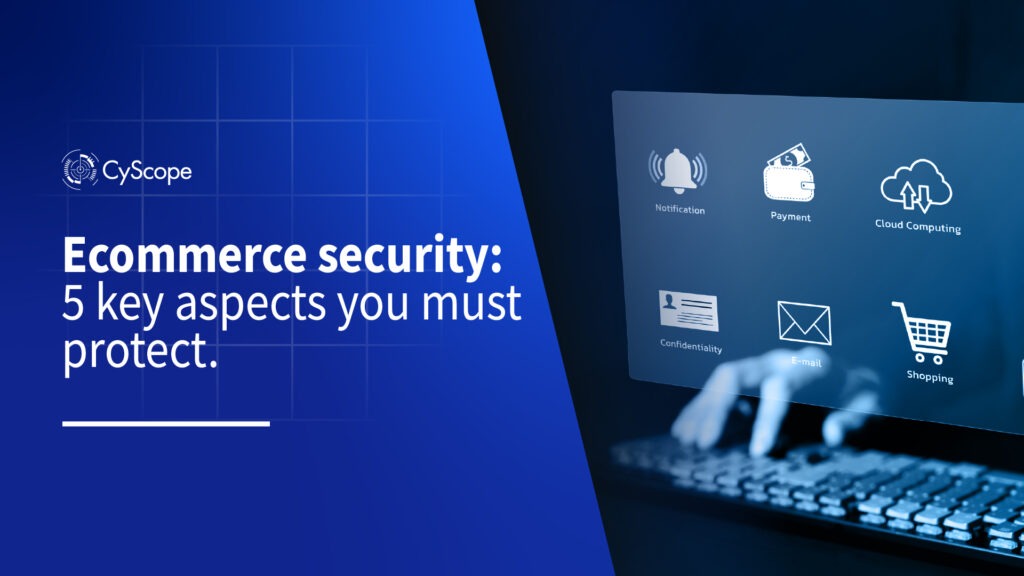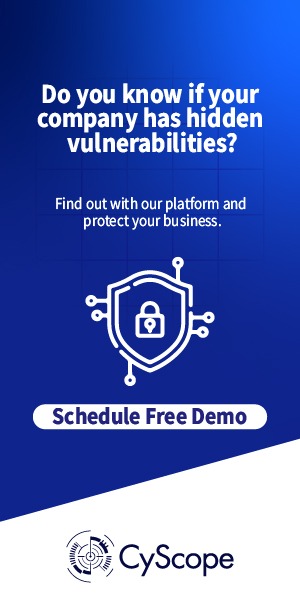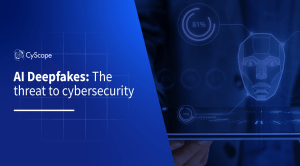Imagine building a thriving business, with thousands of happy customers and sales that grow every day… only to have a cyberattack put it all at risk. In ecommerce, the difference between success and collapse can depend on something you don’t see: ecommerce security. Today, 64% of online businesses have faced at least one serious cyber-attack in the last year, according to the IDB, and each breach not only costs millions, but also directly affects the trust of your customers.
But it’s not all bad news. As cybercriminals innovate, so do the solutions to stop them. In this article, we will reveal the 5 aspects you must protect your online store and how CyScope’s platform can be your best ally to turn security into a competitive advantage.
Customer data protection: Your major responsibility
Ecommerce handles sensitive information: names, emails, credit cards, and purchase patterns. A single mistake can cost you penalties under regulations, besides damaging your reputation.
How do we solve it?
Bug Bounty Programs: Our community of ethical hackers is in charge of finding bugs in your databases, APIs, or registration forms.
Secure payment gateways: Avoid fraud and chargebacks.
43% of ecommerce attacks target financial theft (IBM, 2023). From skimming at checkouts to fraud with cloned cards, the threats are diverse.
How do we solve it?
Penetration testing (PTaaS): We simulate attacks on the integration you developed with payment gateways (such as Mercado Pago or Stripe) to detect authentication or encryption failures.
Validation of integrations: We ensure that payment plugins do not expose sensitive data.
Read also: Importance of ransomware protection in e-commerce
Access management: Who can see your secrets?
Did you know that most internal ecommerce breaches are due to employees with excessive permissions? A disgruntled ex-employee or a hacked account can be your worst nightmare.
How do we solve it?
Pentests On Demand: Our experts try to access critical systems (inventory, CRM) from basic roles.
Access policy review: We help you review the controls defined in your access policy and validate the roles and permissions of each type of user.
Upgraded platform and plugins: The forgotten backdoor
An outdated WordPress plugin or an unpatched version of Magento is a cybercriminal’s dream. 58% of ecommerce attacks exploit known vulnerabilities (OWASP).
How do we solve it?
Identification of dependencies: We identify plugins, libraries, or APIs with critical vulnerabilities (e.g., CVE-2023-4863).
Proactive monitoring: Attack threats before they explode.
A DDoS attack during Cyber Monday or bots hoarding inventory can cripple your sales. Late detection is the most costly mistake.
How do we solve it?
On-demand continuous pentests (PTaaS): Testing at key times to minimize cyber risk during periods of high traffic and visits (peak seasons, launches).
You may be interested in: E-commerce cybersecurity services: Protection against cyberattacks
Conclusion: Ecommerce security is a competitive advantage
Protecting your online store is not just about avoiding disasters: it is about building trust. A customer who knows that his data is safe buys more, comes back, and recommends you.
At CyScope, we’re your 24/7 partner, so you don’t have to. With agile penetration testing, expert ethical hackers, and a focus on real risks, we transform security into an engine of growth.
Ready to discover what vulnerabilities are hidden in your ecommerce? Schedule a free demo and learn how more than 450 experts can help you operate with peace of mind.





